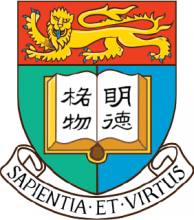Research has traced the complex relationship between booming “international schools” in China, a national exam system that pushes “international curriculum” students on to a stressful path to overseas admissions, and private agents who engage in unethical practices such as falsifying essays.
A paper in International Studies in Sociology of Education, focusing on admissions practices in the booming manufacturing hub of Shenzhen, could be seen as a case study of broader trends across China, particularly in the behaviour of agents in smaller cities where parents may have the financial means to send their children overseas for university study but have no personal experience or understanding of what is involved and lack the English skills to assist in the process.
Shenzhen is now home to 47 “international schools” – private schools that offer foreign curricula such as the International Baccalaureate or A levels. Across mainland China, there are more than 950 of these schools, with a total enrolment of almost 400,000, according to ISC Research.
The paper’s authors interviewed 76 students and parents at international schools that cater to Shenzhen’s “new rich” populations.
The choice of an international high school sets these students on a path towards overseas education. Removed from the local high school curriculum, they cannot easily take the gao kao, a national admissions exam required for all domestic applicants to mainland Chinese universities. “There is no turning back,” the paper’s authors write.
So these students and parents find themselves “playing an unfamiliar game” of having to go overseas or to another territory, such as Hong Kong. Of 16 interviewed parents, only one had English fluency or overseas experience.
Private agents and consultants have capitalised on this situation by charging from Rmb40,000 to Rmb200,000 (£4,400 to £22,000) to guide these families through the “intense anxiety” of an application process that may last two years.
They offer services such as tutoring for standardised tests, crafting recommendation letters and organising extracurricular activities and prestigious-sounding internships for additional fees.
All 60 interviewed students said the agents “helped” with personal statements, and many outright admitted that the writing was not their own. “The essay written by myself was very different from the essay edited by my consulting agency,” said one student. “My first draft was a disaster compared to the final version,” said another. Others said their essays were “beyond recognition”.
Ma Ying, the paper’s lead author and a higher education researcher at the University of Hong Kong, described to Times Higher Education some practices she witnessed when she previously worked in the private sector.
“Some overseas universities really try to check if applicants are qualified,” she said – for example, by using video interviews instead of written essays. “However, no matter what the universities do, agents will find new ways. In a Zoom interview, the agent may stand in the background, holding an iPad with answers.”
These growing practices are “a violation of merit-based selection” and “place other candidates at disadvantages”, the authors write, but they add that part of the blame could fall on “overseas universities’ intentional ‘blind eye’ for the sake of recruiting tuition-fee-paying international students”.
“Universities may be intentionally oblivious to these practices,” Ewan Wright, the paper’s co-author and a researcher at The Education University of Hong Kong, told THE.
Register to continue
Why register?
- Registration is free and only takes a moment
- Once registered, you can read 3 articles a month
- Sign up for our newsletter
Subscribe
Or subscribe for unlimited access to:
- Unlimited access to news, views, insights & reviews
- Digital editions
- Digital access to THE’s university and college rankings analysis
Already registered or a current subscriber? Login











